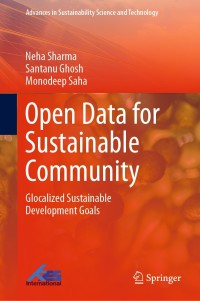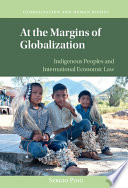Buy Open Data for Sustainable Community: Glocalized Sustainable Development Goals PDF ebook by author Neha Sharma; Santanu Ghosh; Monodeep Saha – published by Springer in 2021 and save up to 80% compared to the print version of this textbook. With PDF version of this textbook, not only save you money, you can also highlight, add text, underline add post-it notes, bookmarks to pages, instantly search for the major terms or chapter titles, etc.
You can search our site for other versions of the Open Data for Sustainable Community: Glocalized Sustainable Development Goals PDF ebook. You can also search for others PDF ebooks from publisher Springer, as well as from your favorite authors. We have thousands of online textbooks and course materials (mostly in PDF) that you can download immediately after purchase.
Note: e-textBooks do not come with access codes, CDs/DVDs, workbooks, and other supplemental items.
eBook Details:
Full title: Open Data for Sustainable Community: Glocalized Sustainable Development Goals
Edition:
Copyright year: 2021
Publisher: Springer
Author: Neha Sharma; Santanu Ghosh; Monodeep Saha
ISBN: 9789813343122, 9781000082517
Format: PDF
Description of Open Data for Sustainable Community: Glocalized Sustainable Development Goals:
This book is an attempt to bring value to the enterprise pursuits in the areas of research and innovation around the specific issues in terms of topic selection, open data resources and researcher orientation. Over the last 300 years, industrial revolutions have had game-changing impact on societies. Presently, by and large, we are at the crossroads of the fourth industrial revolution, where phygital systems are going to play a massive role, where digital systems can simulate and go beyond the limitations of the physical world, thereby enabling a new world order. This transformation is cutting across every sphere known to mankind. The world will become a globally localized marketplace. In today’s business world, sustainability is a corporate agenda. Enterprises are also aiming to be purpose-driven, adaptive and resilient to disruptions. The contributions to community and environment are part of their corporate branding. The book explores and presents a part of the open data sets from government institutions to achieve the sustainable goals at local level, in turn contributing towards global mission. As the topic suggests, the authors are looking at some of the specific issues in the areas of environment, agriculture and health care through the lens of data science. The authors believe that the above three areas chosen have deep relevance in today’s world. The intent is to explore these issues from a data and analytics perspective and identify cracks through which deeper inroads can be made. Conscious efforts have been taken to make use of all the major data science techniques like prediction, classification, clustering, and correlation. Given the above background, deeper waters will be explored through the contents of this book.





